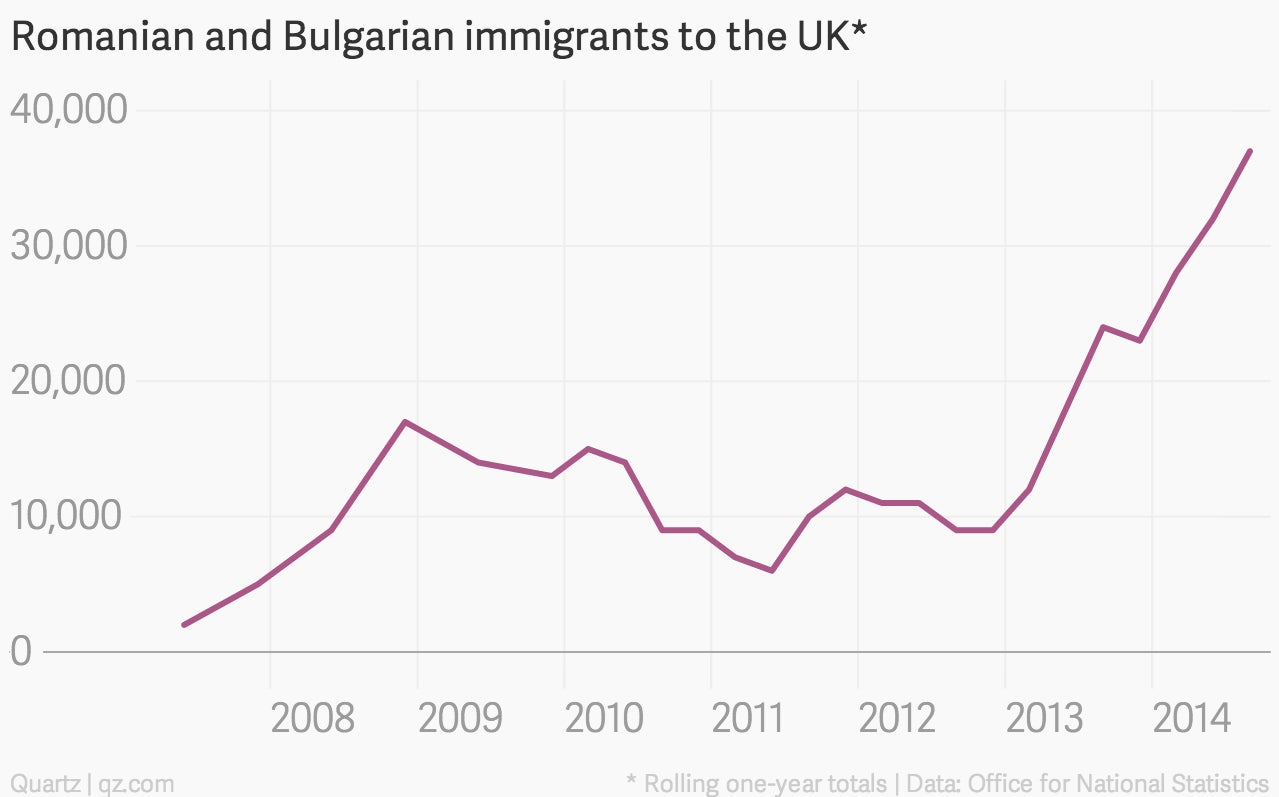Romanian and Bulgarian workers are flooding the UK, but are actually no threat to the job market
An election in May is pushing immigration even higher up the UK political agenda. Those worried about economic migration from countries like Romania and Bulgaria see a clear threat to the livelihood of British-born workers. But a new study suggests the job market can easily absorb the number of new entrants.


An election in May is pushing immigration even higher up the UK political agenda. Those worried about economic migration from countries like Romania and Bulgaria see a clear threat to the livelihood of British-born workers. But a new study suggests the job market can easily absorb the number of new entrants.
The patterns of who comes to the UK, and from where, have changed radically over the years. One recent shift came with the extension of working rights to citizens from elsewhere in the European Union, as well as more countries joining that bloc.
The newest EU members are Bulgaria and Romania, which joined in 2007. But it wasn’t until the UK’s employment restrictions lifted in January 2014 that a significant rise in immigration from those countries began.
The Office for National Statistics found that numbers began to increase in 2013, before the lifting of restrictions, and continued into 2014:

The latest figures show that 37,000 citizens from the two countries migrated to the UK in the year to September 2014, accounting for 6% of total immigration. And 27,000 of those came primarily to work.
But a London School of Economics study (pdf) released around the same time found that there was “still no evidence of an overall negative impact of immigration on jobs, wages, housing or the crowding out of public services.” The main impact of increased immigration to Britain, a third of which now comes from elsewhere in the EU, was on public perception, according to the researchers.
They also found that most new jobs are not taken up by immigrants—a common worry. Rather, the share of new work taken up by immigrants is proportional to their share of the population. Immigrants tend to be better-educated than their British counterparts, meaning that competition was likely to be fiercest between them and lower-skilled native workers. But even here, the researchers found the clash to be minimal.
The perceived problem of losing jobs to immigrants has been one of the drivers for a referendum on the UK’s continued membership of the EU, pushed for by the UK Independence Party and now also backed by the Conservatives. But a recent poll showed rising support for staying in the union, with 45% of respondents wanting to stay versus 35% who want to leave.